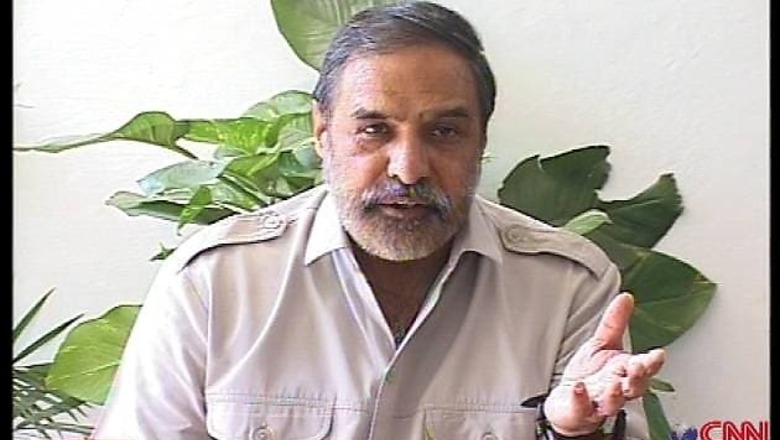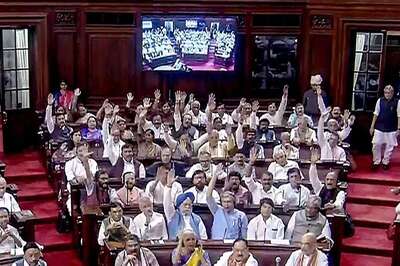
views
Bali: In a major victory for India, the WTO on Friday agreed to allow countries to provide subsidy on staple food crops without any threat of punitive action, a concession that salvaged the current round of world trade talks from the brink of collapse.
After burning the midnight oil and tough negotiations over the past four days in the face of India's unrelenting stand on the food security issue, the 159-member World Trade Organization (WTO) reached a historic agreement that will boost global trade by USD 1 trillion.
The deal allows nations such as India to fix a Minimum Support Price (MSP) for farm produce and to sell staple grains to the poor at subsidised rates. It also permits countries to store foodgrains to meet contingency requirements.
"A great day for India, I am more than happy...India has clinched WTO deal for the farmers and poor of the world," Commerce and Industry Minister Anand Sharma said after the final round of negotiations.
Sharma said, "It's a path-breaking decision...This is the first major decision or agreement that has been reached ever since the WTO was established. "The previous agreement based on the Uruguay round was inherently imbalanced and flawed. The balance was against the developing countries and that is why support was mobilised and it became an imperative to launch a new round of negotiations, which is the Doha Development Agenda."
As per the draft on the agriculture sector, members have agreed to put in place an interim mechanism until a final solution is found with regard to public stock-holding for food security purposes.
Members, the draft added, "shall refrain from challenging through the WTO dispute settlement mechanism...support provided for traditional staple food crops in pursuance of public stock-holding programme for food security purposes..."
Regarded as a major development in the farm sector since 1995, sources said India's tough stance yielded results and the developed world has come around to its demand for flexibility in dealing with food security issues. Sharma had until yesterday maintained that it was "better to have no agreement than to have a bad agreement..." and got support from major emerging economies, including South Africa.
Meanwhile, an Indian official said that India would be entitled to adequate transition time as well as external support and assistance, if required, for implementing trade facilitation agreement.
The trade facilitation agreement will improve competitiveness of Indian industry both in domestic trade and international trade. "India recognises benefits of a trade facilitation agreement, which aims at simplifying customs procedures and
reducing transaction costs," the official said, adding that the agreed text marks a fair balance reflecting the aspirations of both the developed and developing countries.


















Comments
0 comment